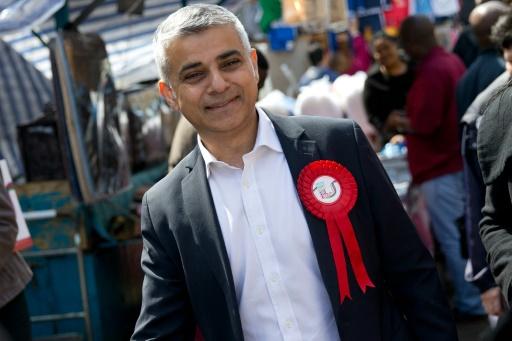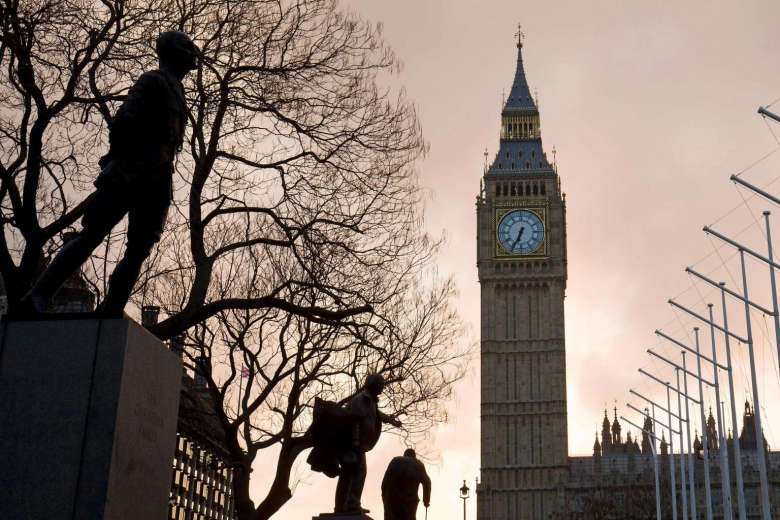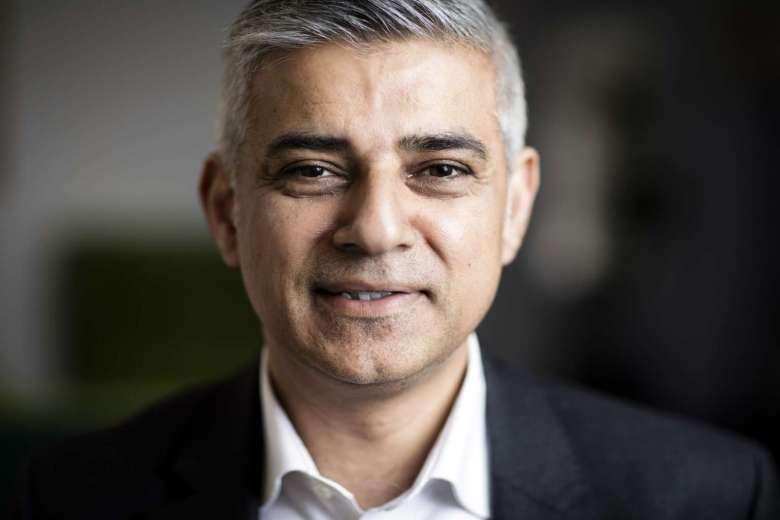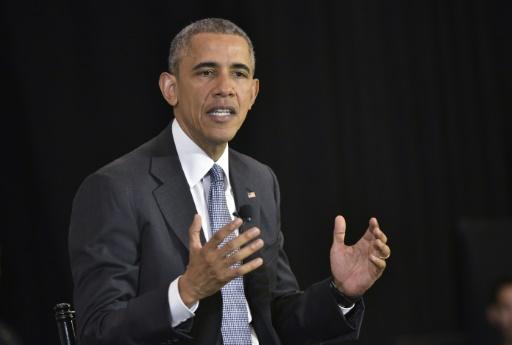
Entertainment
-
 DiscoverEU marks 40 years of Schengen with 40,000 free travel passes for young Europeans
The European Commission is celebrating the 40th anniversary of the Schengen Area by offering 40,000 young Europeans the chance to explore the continent through DiscoverEU, part of the31 October 2025Read More...
DiscoverEU marks 40 years of Schengen with 40,000 free travel passes for young Europeans
The European Commission is celebrating the 40th anniversary of the Schengen Area by offering 40,000 young Europeans the chance to explore the continent through DiscoverEU, part of the31 October 2025Read More... -
 Brussels universities to award honorary doctorates to Stromae, Lize Spit, and Amélie Nothomb
The Vrije Universiteit Brussel (VUB) announced on Monday that Stromae, Lize Spit, Amélie Nothomb, François Schuiten, and Ever Meulen will receive joint honorary doctorates from VUB and27 October 2025Read More...
Brussels universities to award honorary doctorates to Stromae, Lize Spit, and Amélie Nothomb
The Vrije Universiteit Brussel (VUB) announced on Monday that Stromae, Lize Spit, Amélie Nothomb, François Schuiten, and Ever Meulen will receive joint honorary doctorates from VUB and27 October 2025Read More... -
 Stolen Renaissance masterpiece returns to Italy after 52 years
After more than half a century, a stolen Renaissance painting has finally returned home to Italy. *Madonna with Child*, a tempera-on-wood masterpiece by Venetian painter Antonio Solario,31 July 2025Read More...
Stolen Renaissance masterpiece returns to Italy after 52 years
After more than half a century, a stolen Renaissance painting has finally returned home to Italy. *Madonna with Child*, a tempera-on-wood masterpiece by Venetian painter Antonio Solario,31 July 2025Read More... -
 Belgian seaside resorts: highlights of royal De Panne
While Ostend is often dubbed the queen of Belgium’s seaside resorts, the country’s coastline offers many other gems worth discovering. In this series, Belga English explores four distinctive20 July 2025Read More...
Belgian seaside resorts: highlights of royal De Panne
While Ostend is often dubbed the queen of Belgium’s seaside resorts, the country’s coastline offers many other gems worth discovering. In this series, Belga English explores four distinctive20 July 2025Read More... -
 Louis Vuitton named suspect in Dutch money laundering probe
Luxury fashion house Louis Vuitton has been named a suspect in a Dutch money laundering investigation, according to the Dutch Public Prosecution Service (OM). The OM alleges that18 July 2025Read More...
Louis Vuitton named suspect in Dutch money laundering probe
Luxury fashion house Louis Vuitton has been named a suspect in a Dutch money laundering investigation, according to the Dutch Public Prosecution Service (OM). The OM alleges that18 July 2025Read More... -
 Brussels tops global rankings for international meetings as tourism soars to new heights
Brussels has once again secured its position as the world’s top city for international meetings, according to the latest annual report from the Union of International Associations (UIA).26 June 2025Read More...
Brussels tops global rankings for international meetings as tourism soars to new heights
Brussels has once again secured its position as the world’s top city for international meetings, according to the latest annual report from the Union of International Associations (UIA).26 June 2025Read More... -
 Coffee prices keep climbing in Czech establishments
The cost of a cup of coffee in Czech restaurants and cafés has increased by 4% over the past year, now averaging CZK 57.80, according to data from the Dotykačka point-of-sale system.15 June 2025Read More...
Coffee prices keep climbing in Czech establishments
The cost of a cup of coffee in Czech restaurants and cafés has increased by 4% over the past year, now averaging CZK 57.80, according to data from the Dotykačka point-of-sale system.15 June 2025Read More...
News
-
 Indonesia takes delivery of first Rafale fighter jets in $8 billion defence upgrade
Indonesia has officially taken delivery of its first Rafale fighter jets from France, marking a major milestone in the country’s push to modernise its ageing military fleet.Read More...
Indonesia takes delivery of first Rafale fighter jets in $8 billion defence upgrade
Indonesia has officially taken delivery of its first Rafale fighter jets from France, marking a major milestone in the country’s push to modernise its ageing military fleet.Read More... -
 EU must build over 2 million homes annually by 2035 to avert housing crisis, new data shows
The European Union will need to build more than two million new homes every year until 2035 to keep up with soaring demand, according to new projections released by the EuropeanRead More...
EU must build over 2 million homes annually by 2035 to avert housing crisis, new data shows
The European Union will need to build more than two million new homes every year until 2035 to keep up with soaring demand, according to new projections released by the EuropeanRead More... -
 Police raid homes and offices of French Culture Minister Rachida Dati in corruption probe
French police searched Culture Minister Rachida Dati’s home and offices on Thursday as part of a widening corruption investigation linked to her tenure as a European Parliament lawmaker,Read More...
Police raid homes and offices of French Culture Minister Rachida Dati in corruption probe
French police searched Culture Minister Rachida Dati’s home and offices on Thursday as part of a widening corruption investigation linked to her tenure as a European Parliament lawmaker,Read More... -
 White Christmas unlikely in Switzerland, MeteoSwiss says
The chances of a white Christmas in Switzerland are slim, with snowfall in the lowlands virtually ruled out, according to the Federal Office of Meteorology and Climatology (MeteoSwiss).Read More...
White Christmas unlikely in Switzerland, MeteoSwiss says
The chances of a white Christmas in Switzerland are slim, with snowfall in the lowlands virtually ruled out, according to the Federal Office of Meteorology and Climatology (MeteoSwiss).Read More... -
 Guy Parmelin elected Swiss President for 2026 with record-breaking vote
Economics Minister Guy Parmelin will serve as President of the Swiss Confederation in 2026, securing the office with a result that sets a new benchmark for the current millennium.Read More...
Guy Parmelin elected Swiss President for 2026 with record-breaking vote
Economics Minister Guy Parmelin will serve as President of the Swiss Confederation in 2026, securing the office with a result that sets a new benchmark for the current millennium.Read More... -
 Nigeria seeks French support to tackle insecurity, Macron says
Nigerian President Bola Tinubu has requested increased support from France to combat escalating insecurity in the country’s north, French President Emmanuel Macron said on Sunday,Read More...
Nigeria seeks French support to tackle insecurity, Macron says
Nigerian President Bola Tinubu has requested increased support from France to combat escalating insecurity in the country’s north, French President Emmanuel Macron said on Sunday,Read More... -
 Swiss army has “gone back to sleep,” says departing chief
Switzerland briefly awakened to the urgency of national defence following Russia’s 2022 invasion of Ukraine — but has since drifted back into complacency, outgoingRead More...
Swiss army has “gone back to sleep,” says departing chief
Switzerland briefly awakened to the urgency of national defence following Russia’s 2022 invasion of Ukraine — but has since drifted back into complacency, outgoingRead More...

Most Read
- Teen held after US woman killed in London stabbings
- Football: Farhad Moshiri adamant Everton deal above board
- Greece hails new post-bailout chapter but concerns remain
- The Kokorev case caused wide discussion in Brussels
- EU accession talks stir debate in Moldova: insights from Gagauzia's leader, Yevgenia Gutsul
Politics

Britain leaving the EU would damage Western security and dangerously weaken Europe, five ex-NATO chiefs and a host of former US secretaries of state and defence warned on Tuesday.
The former NATO heads said a so-called Brexit would undermine the transatlantic military alliance and "give succour to the West's enemies", and would "undoubtably lead to a loss of British influence".
In a letter to The Daily Telegraph newspaper, they said they were following the debate ahead of the June 23 referendum on Britain's EU membership "with growing concern".
"Given the scale and range of challenges to peace and stability we collectively face, the Euro-Atlantic community needs an active and engaged United Kingdom.

Sadiq Khan was sworn in as London mayor Saturday after being elected the first Muslim leader of a major Western capital, as the Conservatives defended attempts to link him to extremism during the campaign.
The opposition Labour lawmaker, the son of a Pakistani bus driver who grew up in social housing in the city, broke from convention by taking his oath of office in a multi-faith ceremony at Southwark Cathedral.
"My name is Sadiq Khan and I'm the mayor of London," the 45-year-old said to cheers from supporters, who had earlier given him a standing ovation as he walked in.
He added: "I'm determined to lead the most transparent, engaged and accessible administration London has ever seen, and to represent every single community, and every single part of our city, as mayor for all Londoners."
Khan won 57 percent of the vote in Thursday's mayoral election, securing 1.3 million votes to see off multimillionaire Conservative Zac Goldsmith and make history as the city's first Muslim mayor.
In his victory speech in the early hours of Saturday morning, Khan referenced the negative campaign against him by saying London had chosen "unity over division".
Conservative Prime Minister David Cameron had led the attacks against Khan for sharing platforms with radical Muslims at public events.
There was criticism from across the political spectrum on Saturday at the tone of the Tory campaign, but Defence Secretary Michael Fallon insisted it was legitimate.
"Both candidates were asked questions about their backgrounds, their personalities, their judgment, the people they associate with," he told BBC radio.

Opposition Labour lawmaker Sadiq Khan is on course to become the new mayor of London and the first Muslim leader of an EU capital, final opinion polls suggested Wednesday, despite attempts to link him to extremists.
The son of a Pakistani immigrant bus driver has a 12- or 14-point lead over Zac Goldsmith, his multimillionaire rival from Prime Minister David Cameron's Conservative party, according to two polls published ahead of Thursday's vote.
In a final campaign stop in a street market in a multi-cultural district of south London, Khan joked with stallholders and their customers and posed in the spring sunshine for selfie pictures.
But he condemned the divisive nature of the campaign that has seen him repeatedly forced to defend himself against claims that he has failed to condemn Muslim extremists.
"I am disappointed that the Conservatives and Zac Goldsmith have decided to have a negative, divisive and increasingly desperate campaign," he told AFP.
"Hopefully if I win, I'll be the mayor that unites our city again, that brings communities together."
Tensions over the campaign have been exacerbated by a simmering row over anti-Semitism in the Labour party, which exploded last week with the suspension of a lawmaker and former London mayor Ken Livingstone.

Australian entrepreneur Craig Wright on Monday identified himself as the creator of Bitcoin following years of speculation about who invented the pioneering digital currency.
Wright was named by three media outlets -- the BBC, The Economist and GQ magazine -- and posted a blog on his website.
However, in a defiant interview with the BBC, the 45-year-old insisted that he would have preferred his identity to remain secret, adding he was not seeking cash or honours.
"I don't want money, I don't want fame, I don't want adoration, I just want to be left alone," Wright told the British broadcaster.
"If anyone puts me up for awards or anything like that, I will never, ever accept a cent. Ever."
He added that he had not taken the decision to identify himself, saying: "I had people decide this matter for me."
Some raised questions about his claim, suggesting more work should be done to verify it.
Bitcoin is a technically sophisticated and untraceable currency based on the same underlying mathematics as governments and militaries use to encrypt codes.
Unlike traditional currencies such as the dollar or the euro, which require the sponsorship of a central bank, Bitcoin is decentralised.
Digital coins are created by supercomputers and then traded online or exchanged for goods and services by a peer-to-peer network of computers connected to the Internet.

The favourites to become London’s new mayor on Thursday are two completely contrasting candidates: Zac Goldsmith, the son of a tycoon financier, and Sadiq Khan, the son of a bus driver from Pakistan.
Polls put Labour candidate Khan, 45 and his Conservative rival Zac Goldsmith, 41, as the top two candidates in a field of 12.
– Sadiq Khan –
Khan’s rise to prominence represents a modern fairytale.
Born in London in 1970 to parents who had recently arrived from Pakistan, he grew up in public housing with his six brothers and sister in Tooting, an ethnically diverse residential area in the south of the city.
But his modest background plays well in a city that boasts about its diversity and loves a self-made success story.
Khan regularly recalls how his father drove London’s famous red buses, how his mother was a seamstress and one of his brothers is a motor mechanic.

Former London mayor Ken Livingstone said on Saturday he regretted a row over anti-Semitism that has rocked Britain's opposition Labour party, but refused to withdraw comments linking Hitler to Zionism.
"I really regret saying it because it has caused all this eruption," the veteran politician told LBC radio, amid a controversy that threatens to damage Labour's chances ahead of regional elections next week.
But he said Israeli Prime Minister Benjamin Netanyahu had made similar remarks, adding: "I never regret saying something that is true."
Livingstone was suspended from the centre-left party on Thursday after saying Hitler initially wanted to move Jews to Israel, and "was supporting Zionism before he went mad and ended up killing six million Jews".

Britain's opposition Labour Party on Thursday (April 28) suspended former London mayor Ken Livingstone after he said Hitler supported Zionism, in a furious row over anti-Semitism that is dividing the party.
"Ken Livingstone has been suspended by the Labour Party, pending an investigation, for bringing the party into disrepute," a Labour spokesman said.
Mr Livingstone told BBC Radio London: "When Hitler won his election in 1932 his policy then was that Jews should be moved to Israel. He was supporting Zionism before he went mad and ended up killing six million Jews."

Big Ben will fall silent for several months while the iconic London clock tower next to the Houses of Parliament undergoes "desperately needed" repairs next year, officials said on Tuesday (April 26).
The bell, whose chimes feature on British radio broadcasts, will be silenced as part of the £29 million repairs.
The work will repair the clock faces and mechanism, cracks in the tower's masonry and corrosion in the roof, as well as restoring the edging around the clock faces to their original 19th-century colour.

British Prime Minister David Cameron accused the main opposition Labour party's candidate for London mayor of associating with an alleged supporter of the Islamic State group on Wednesday, triggering a furious row.
Cameron's comments were aimed at Sadiq Khan, a Muslim former government minister and human rights lawyer who is leading opinion polls for the May 5 mayoral election.
During Prime Minister's Questions in the House of Commons, Cameron accused Khan of appearing alongside imam Sulaiman Ghani on nine occasions. "If we are going to condemn not just violent extremism but also the extremism that seeks to justify violence in any way, it is very important that we do not back these people and we do not appear on platforms with them," Cameron said.
The prime minister added that he was "concerned" about Khan, accusing him of appearing "again and again and again" with Ghani, saying: "This man supports IS." Cameron's comments were interrupted by an uproar from Labour MPs, some of whom shouted "racist" at him.

US President Barack Obama will be thrust into the eye of a boisterous British debate over European Union membership when he touches down in London on Thursday for a royal-filled visit.
The US president's four-day trip -- perhaps his last to Britain before leaving office next year -- comes ahead of a June 23 referendum when Britons will be asked if they want to remain in the 28-member EU.
Obama is sure to be asked to weigh in on the issue during a joint press conference on Friday after talks with Prime Minister David Cameron or at a town hall-style meeting with British youngsters on Saturday.
It may even come up at a lunch with Queen Elizabeth II at Windsor Castle on Friday -- a day after the monarch's 90th birthday, when the two heads of state will be joined by First Lady Michelle Obama.
Britain's departure from the EU -- so-called Brexit -- could have deep ramifications for Washington's "special relationship" with Britain, and on the stability of the European Union itself.
- 'Exorbitant hypocrisy' -



















